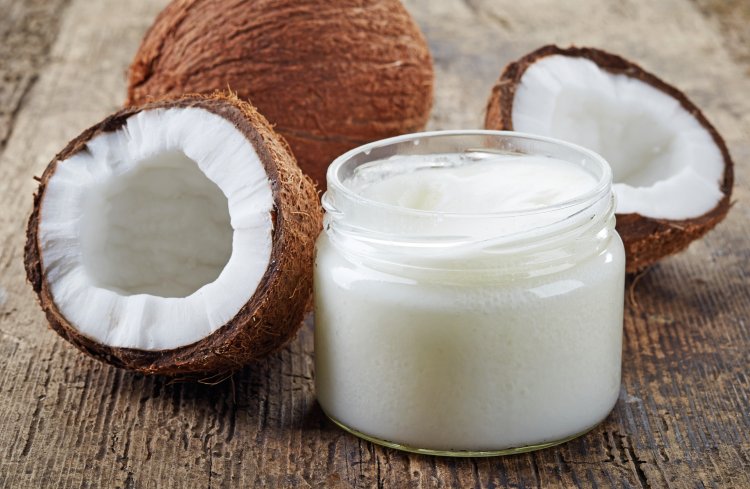Is There Really a Place for Coconut Oil in a Healthy Diet?
Few foods stir up as much debate as coconut oil. Depending on which article (or influencer) you stumble across, it’s either a miracle elixir that melts belly fat and guards your brain from dementia or, on the opposite extreme, “pure poison” you should keep far away from your kitchen.

No wonder people are confused. The truth, as with most things in nutrition, lives in the messy middle. Coconut oil isn’t a magic bullet, but it isn’t toxic sludge either. Let’s break down what the science actually says and how this tropical oil might (or might not) fit into a healthy lifestyle.
Coconut Oil and the Fat Dilemma
First things first: coconut oil is made up of about 80–90% saturated fat. That’s the same category of fat you’ll find in butter, cheese, and fatty cuts of meat, the kind known to raise LDL cholesterol, the so-called “bad” cholesterol that clogs arteries.
Saturated fats are solid at room temperature. In contrast, unsaturated fats, the kind found in olive oil, nuts, seeds, and fish stay liquid and are linked to better heart health, thanks to their anti-inflammatory properties and ability to boost HDL (“good”) cholesterol.
This is why organizations like the American Heart Association (AHA) and the Dietary Guidelines for Americans recommend capping saturated fat intake at no more than 10% of daily calories (or even 6% if you already have heart disease). To put that into perspective: a single tablespoon of coconut oil delivers about 12 grams of saturated fat, nearly the entire daily limit for someone on a 2,000-calorie diet.
Why the Coconut Oil Hype Took Off

If coconut oil raises LDL cholesterol, how did it get its glossy “superfood” reputation? Much of the hype comes from research on medium-chain triglycerides (MCTs), a special type of fat that’s digested differently from the long-chain fats in most foods. MCTs are quickly absorbed, burned for energy, and may promote satiety which is why they’re popular in ketogenic and Paleo circles.
Here’s the catch: the coconut oil you buy at the grocery store is not pure MCT oil. It’s mostly lauric acid, which behaves more like a long-chain fat than a true MCT. Lauric acid does raise HDL cholesterol (the good kind), but it also raises LDL cholesterol. The net effect on long-term heart health? Still murky at best.
Some point to traditional populations in India, the Philippines, or Polynesia who have historically eaten coconut oil without sky-high rates of heart disease. But context matters: those diets were often plant-heavy, minimally processed, and paired with active lifestyles. Coconut oil was just one ingredient in a much bigger, healthier picture.
Coconut Oil: A Balanced Take
So where does this leave us? Coconut oil isn’t the dietary villain some headlines claim, nor is it the cure-all promised in glossy wellness blogs. Think of it as a flavorful supporting actor not the star of your kitchen.
Use it sparingly. A dollop in a curry or a drizzle in baking can add wonderful flavor. But relying on it daily isn’t doing your heart any favors.
Rotate your oils. Olive oil, canola oil, avocado oil, and other unsaturated fats are still the MVPs for cardiovascular health.
Zoom out. What matters most is the overall pattern of your diet: more plants, fewer ultra-processed foods, balanced fats. Coconut oil can fit into that framework but only in moderation.
The Bottom Line
Coconut oil is not a miracle. It’s not poison. It’s just… coconut oil. A rich, tropical-flavored fat that, when enjoyed occasionally, won’t wreck your health but when leaned on too heavily, can nudge your cholesterol in the wrong direction.
The smartest move? Treat coconut oil the way you might treat dessert: an enjoyable accent in an otherwise balanced diet, not the foundation of it. Your heart (and your taste buds) will thank you.
What's Your Reaction?




















